9 things you didn’t know you could clean with a lemon
When life throws you lemons, just clean your home with them
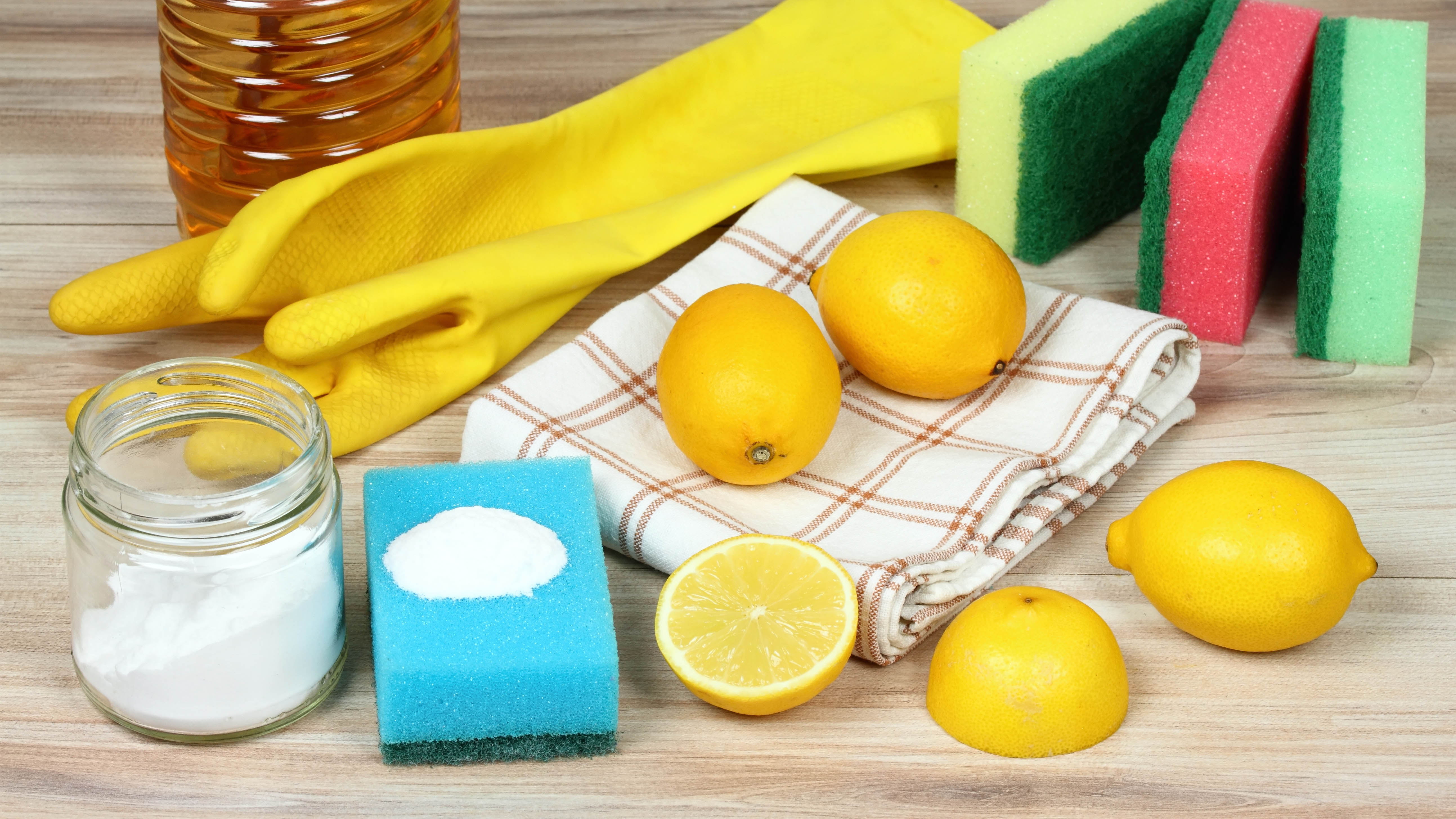
Lemons can make a refreshing addition to our meals, but did you know they can also be used for cleaning? Similar to the miraculous cleaning properties of baking soda and white vinegar, lemons are a great, natural cleaning solution without the use of harsh chemicals.
In addition, lemons are a natural bleaching agent, and can deodorize bad odors, leaving a fresh scent. Plus, it’s far cheaper than spending a fortune on cleaning products. Here are nine things you didn’t know you could clean with a lemon around the home.
Plus, check out these 7 things you never knew you could clean with denture tablets. And here's what happened when our Homes writer cleaned her home with lemons.
1. Bathroom
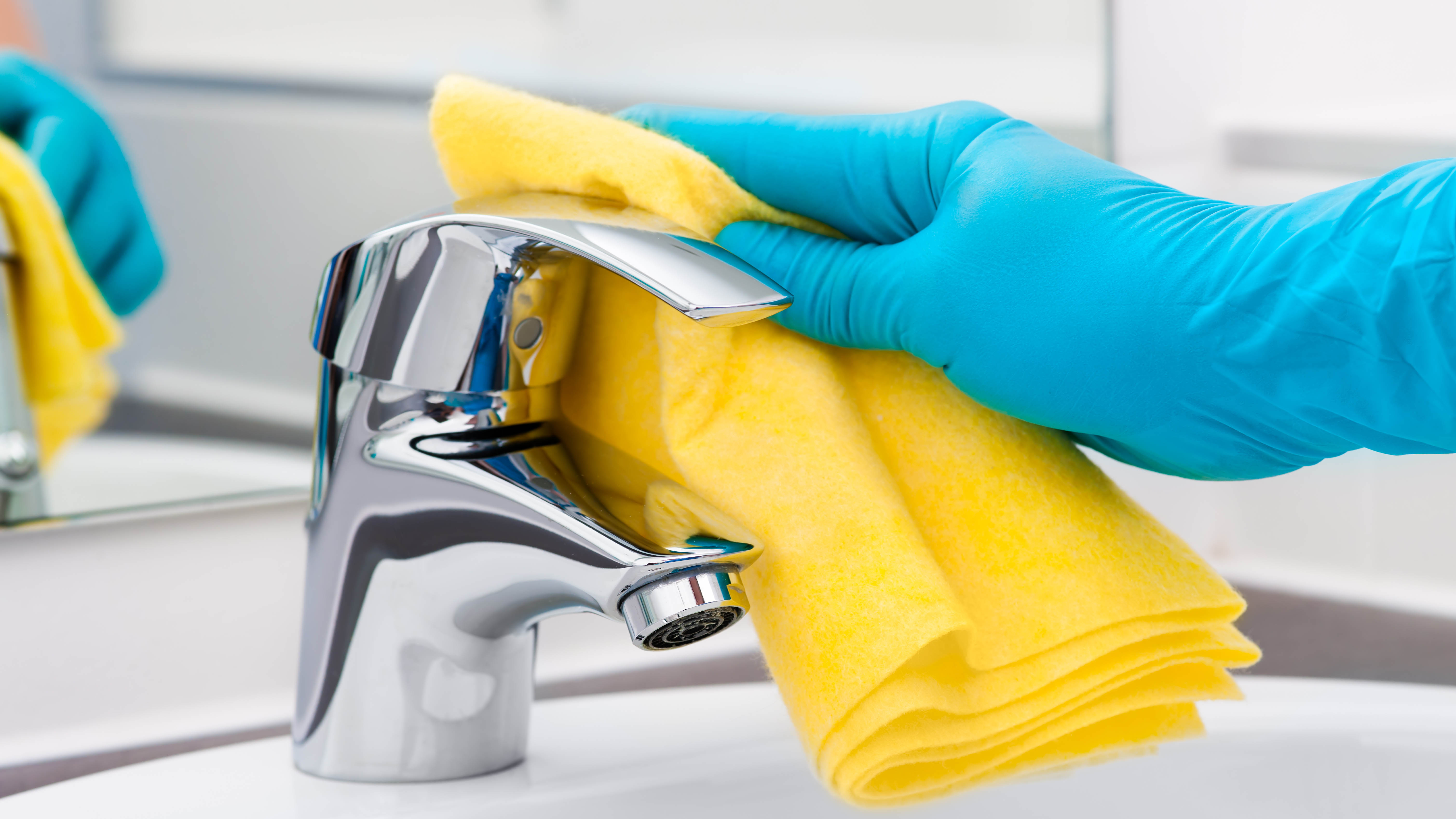
Lemons are great at tackling limescale around bathroom faucets or the showerhead. Simply run the cut side of a lemon over faucets, drains, and more to remove hard water stains. Rinse and dry thoroughly, and this will make them fresh and shiny. Never use lemons on gold plated taps as it could damage or discolor the surface.
In addition, lemon juice can get rid of marks on glass shower doors and soap scum around your bathtub or in the shower. Simply apply the lemon juice on a sponge or dilute lemon juice with water into a spray bottle. This will be easier to spray onto a larger surface. Allow the lemon juice to sit for a minute before wiping clean with a damp cloth.
Check out this TikTok hack to remove limescale from taps for more tips and tricks. And when you're done see our guide on how to get rid of mold from the shower or wherever you may find it.
2. Microwave
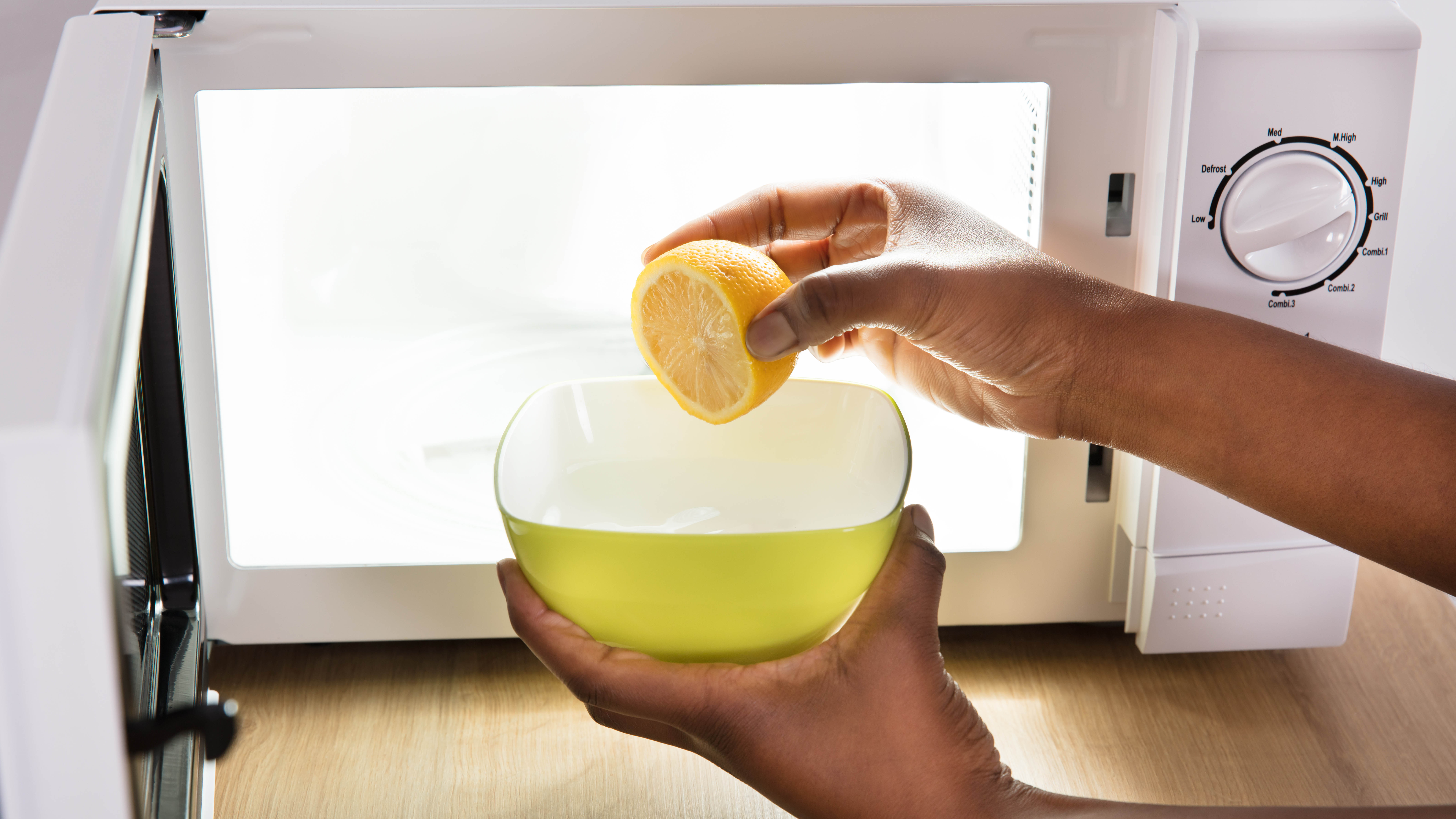
Our microwaves are prone to messy spills or caked-on food or grease. Instead of getting out the cleaning spray, there is a quick way to make it spotless without all the elbow grease. First, fill a microwave-safe bowl or measuring cup with water before squeezing two lemon halves into it. Microwave the mixture for three minutes, then let it sit for five minutes. Leave the door closed to allow the steam to loosen up the hardened food residue or grease. This will make it easier to wipe the inside of the microwave clean with a damp cloth.
Sign up to get the BEST of Tom's Guide direct to your inbox.
Get instant access to breaking news, the hottest reviews, great deals and helpful tips.
If you want to give the rest of your microwave a thorough clean, check out how to clean a microwave.
3. Glass
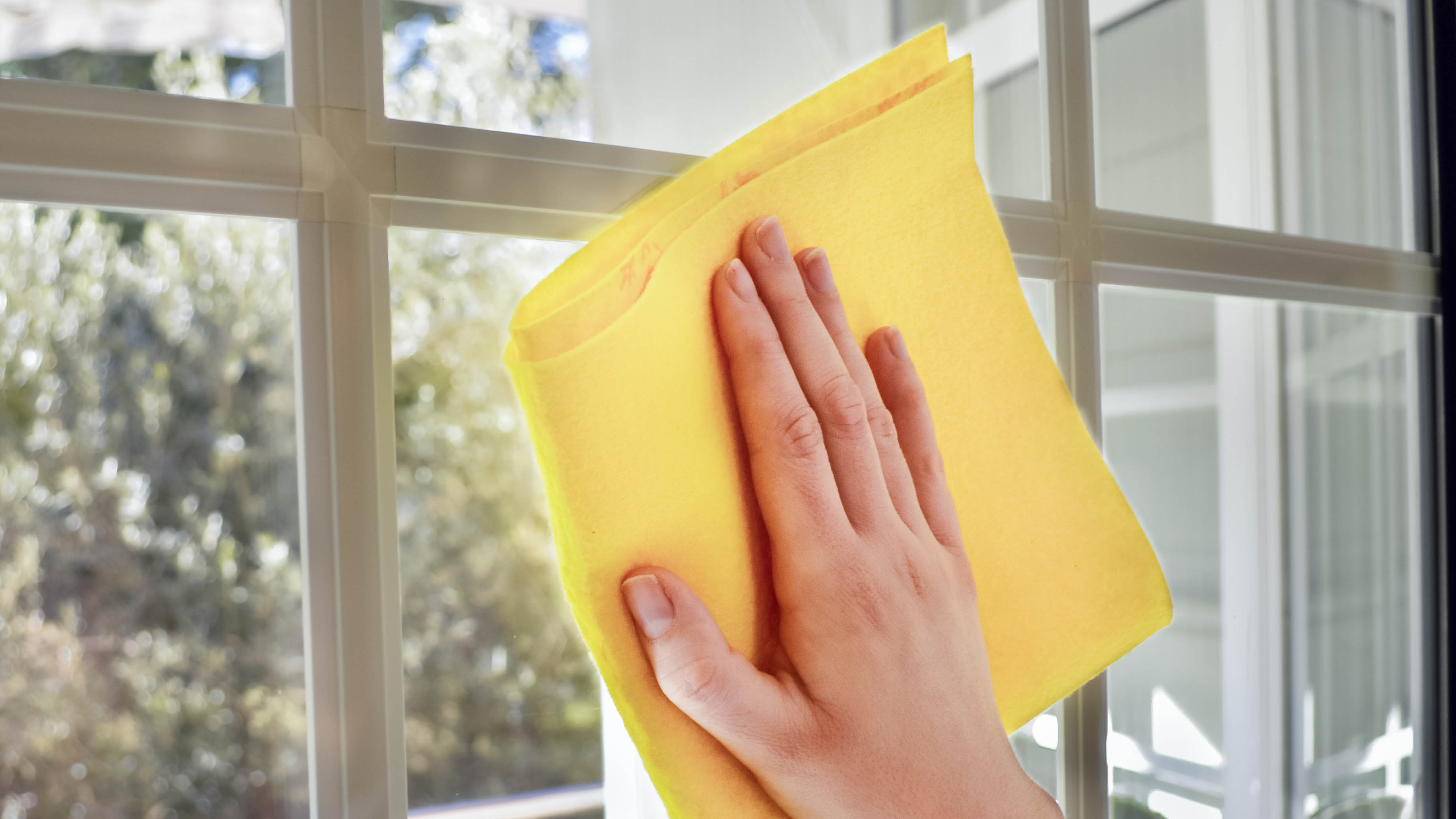
Similar to white vinegar, lemon juice can make your glass spotless and streak-free. You can easily make a DIY spray by mixing one tablespoon of white vinegar and two tablespoons of lemon juice in warm water. Pour into a clean spray bottle and apply directly onto the glass. While this solution can also be used on plastic, or ceramic surfaces, avoid using lemon juice on porous surfaces such as marble, granite or slate. The high acidity may scratch or damage surfaces.
4. Pots and pans
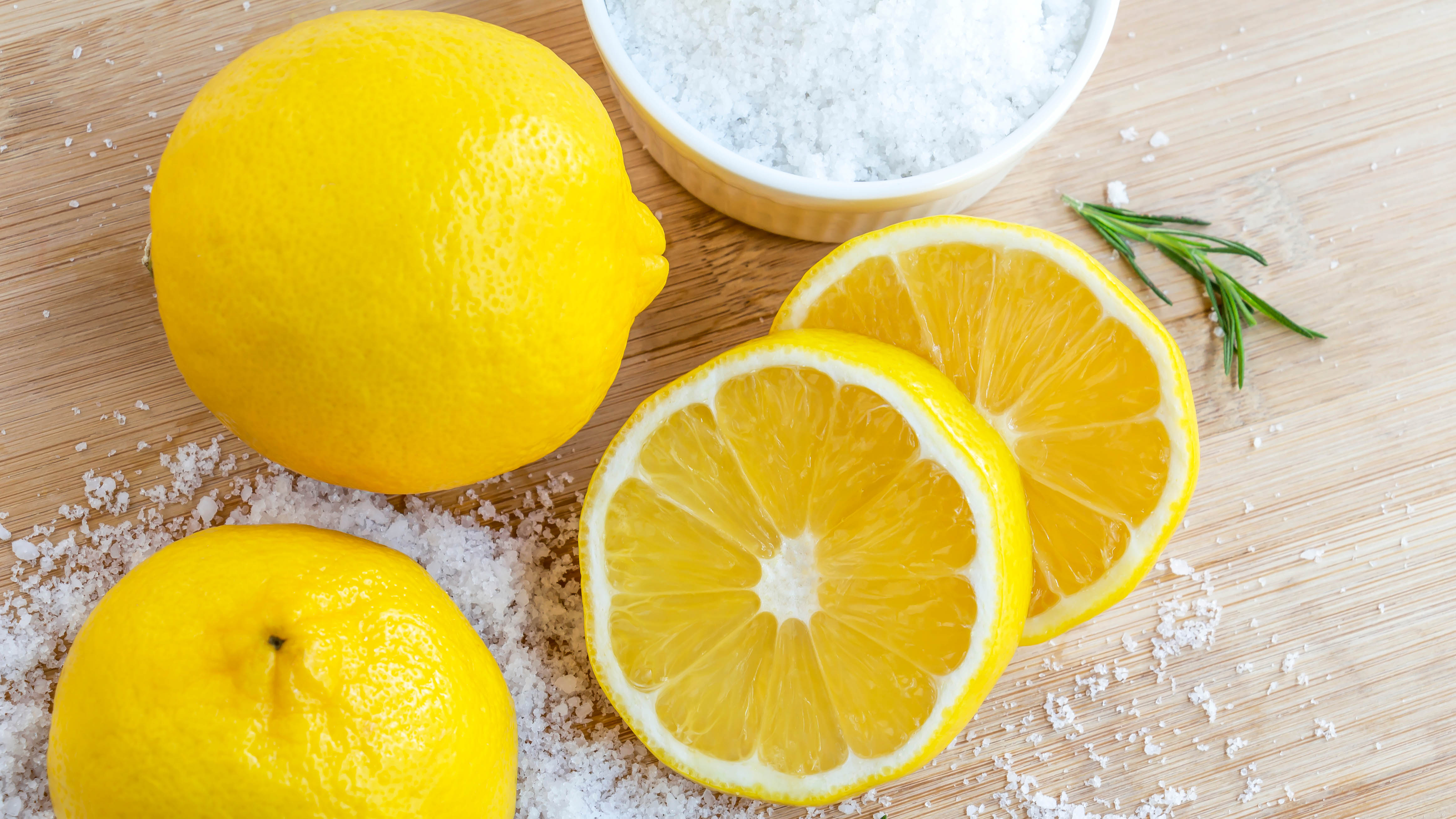
If you have hardened dirt, food or grease, lemons make a natural scourer and stain remover. Simply slice a lemon in half, dip it in coarse salt and rub it onto metal surfaces such as stainless steel and copper pans. This will eliminate dirt and make them shine. Don’t use lemon on silver and gold features though, as it can damage the plating. You may also want to read how to clean stainless steel without damaging it.
5. Blender
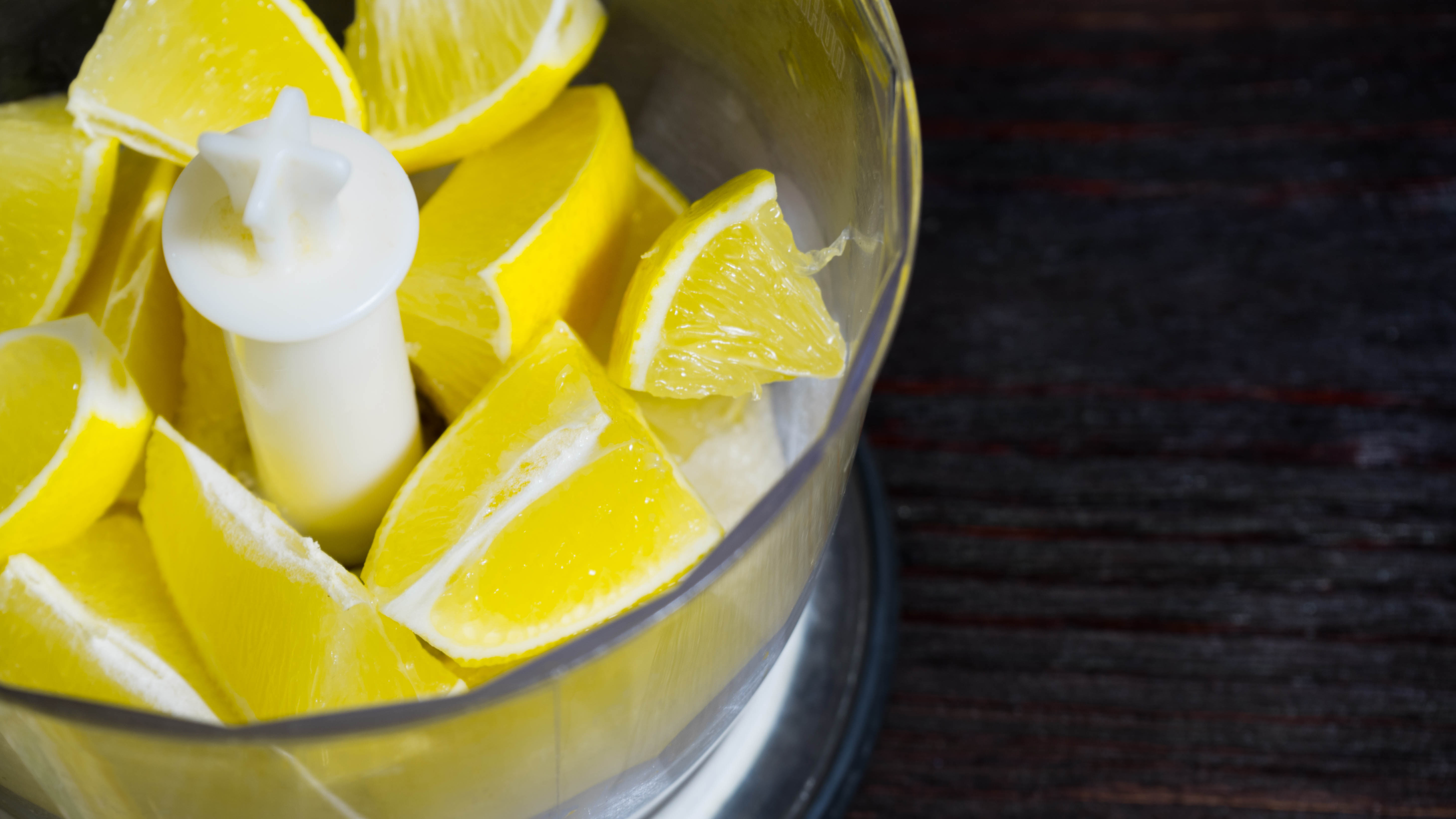
If you use your blender often, it will be prone to lingering odors. This easy hack is simply to cut up a lemon and add it to the blender with half a cup of water. Then turn the blender on for a minute or two before rinsing out and leaving to dry. The lemon will help eliminate odors out of the blender jar and leave it smelling fresh and citrus clean. For more tips and tricks, this TikTok hack cleans your blender in seconds without a sponge.
6. Kitchen knives
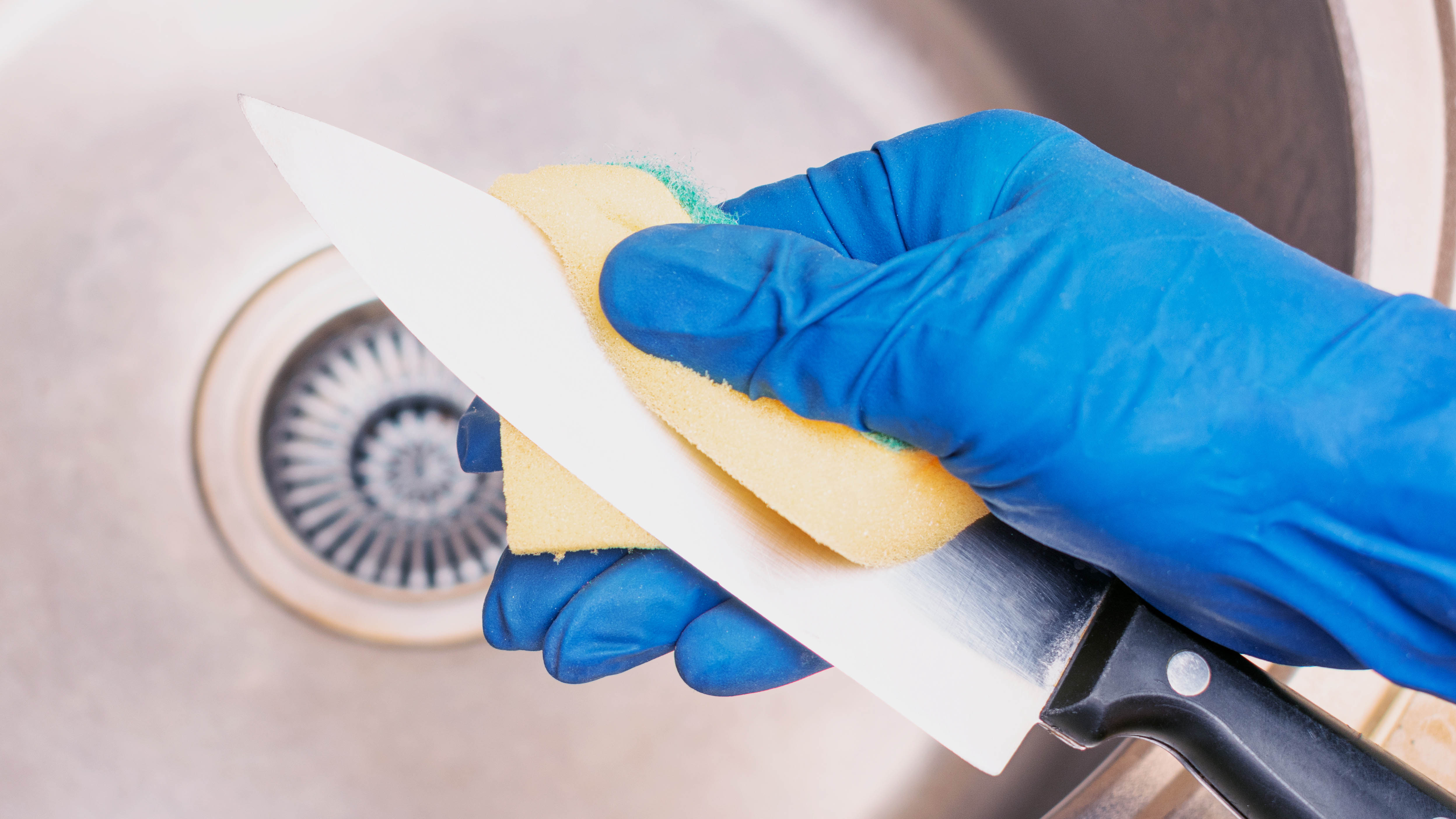
If your best kitchen knives have rust spots, lemon juice can help to remove these. Simply soak the stainless steel part of your knives in lemon overnight. Then, rinse each knife with warm water and dry with a clean towel. The lemon juice acidity will lift the rust away from the knives so they’ll be spotless.
7. Cutting boards
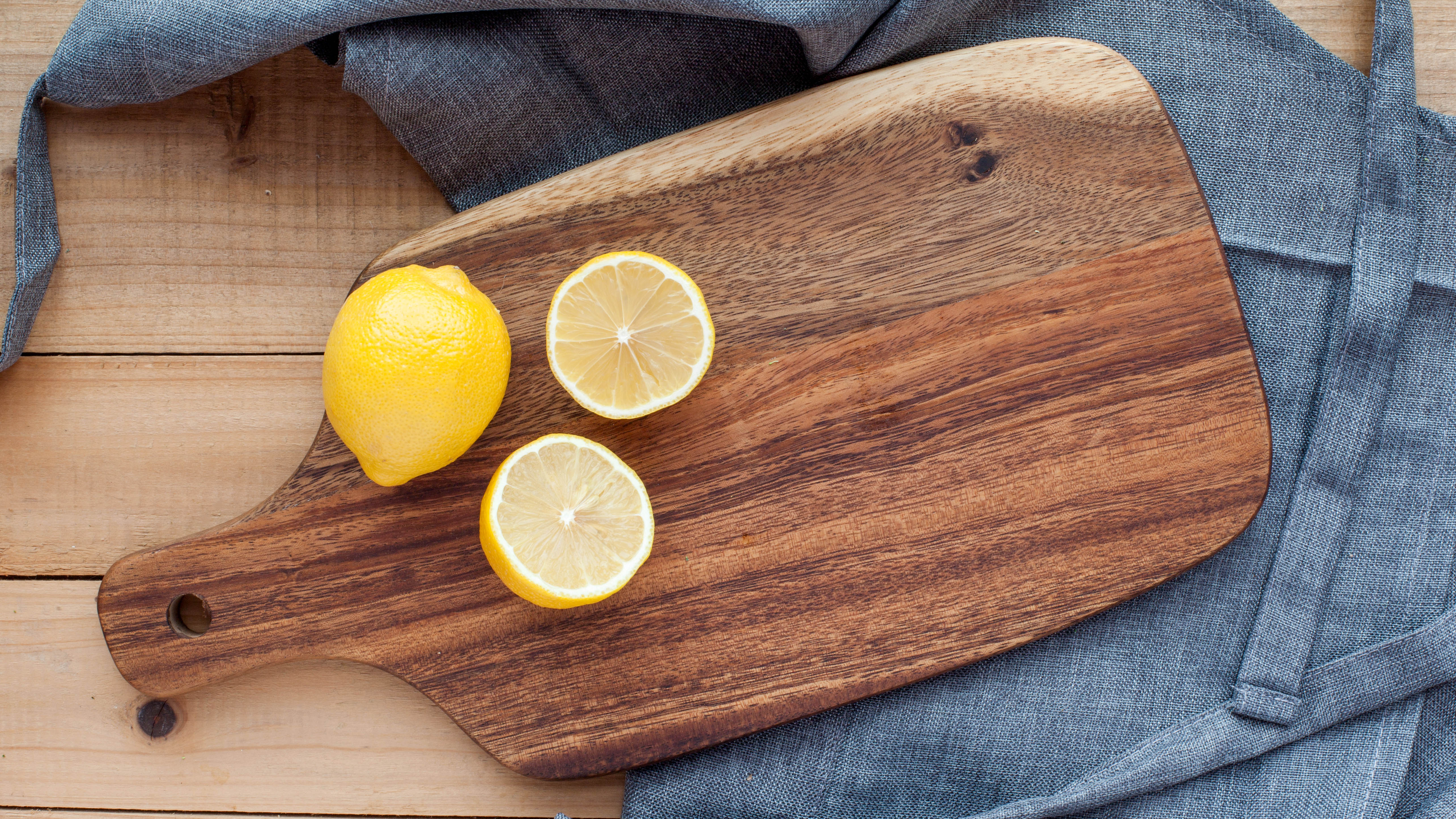
Wooden cutting boards can often be prone to stains and marks, especially if you’re chopping foods such as beets, tomatoes or carrots. Lemons are a quick and easy way to tackle these. Simply run half a lemon over the wooden surface to get rid of stubborn stains and odors.
8. White linen/clothing
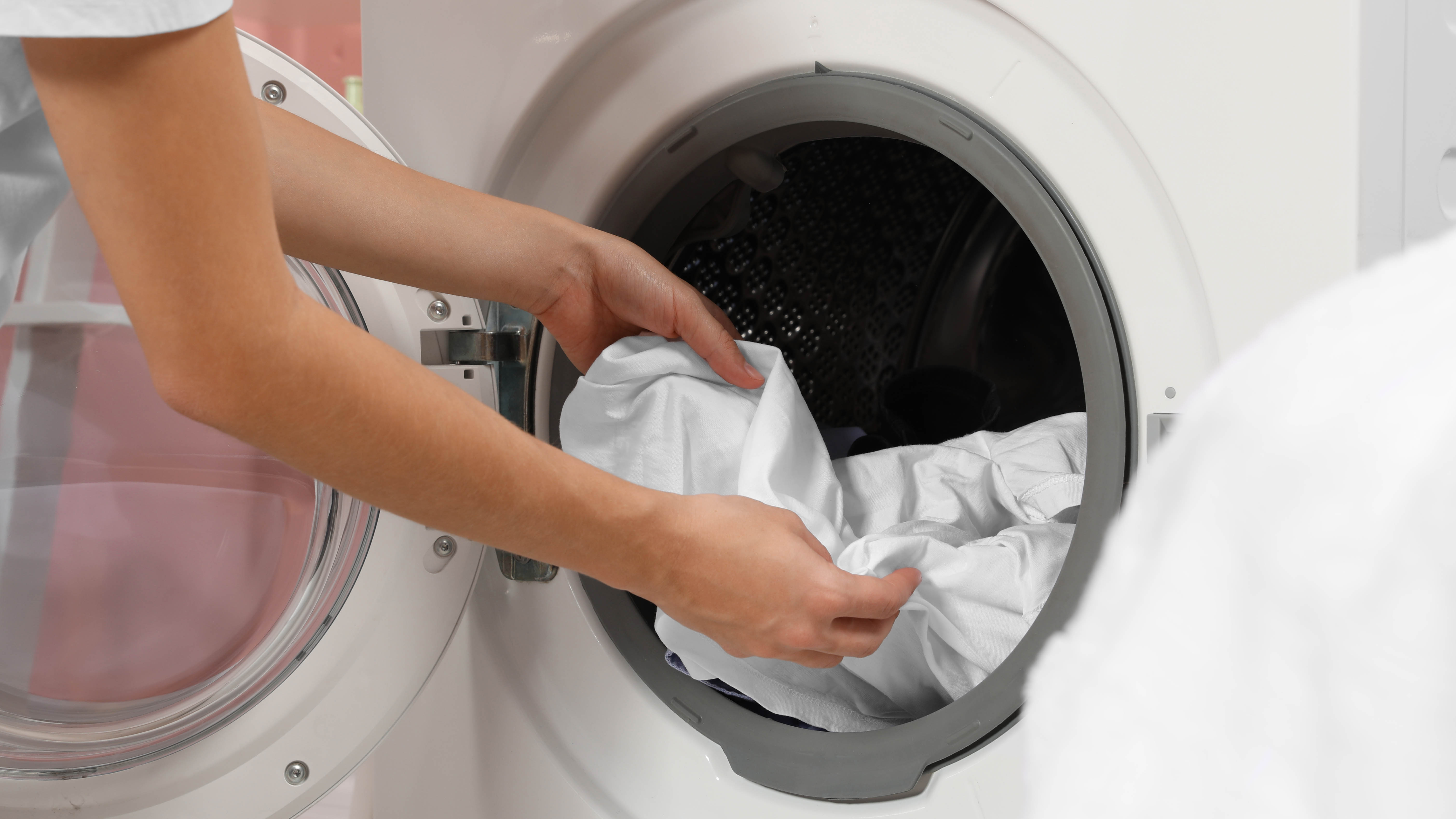
Lemon juice can be used as an alternative to bleach to brighten your white linen. Simply place your whites in five litres of cold water with the juice of one lemon and leave to soak for an hour, before machine washing as normal. In addition, lemon juice is a natural stain remover so this will get rid of stubborn yellow sweat stains or deodorant marks. Avoid using it on colorful fabrics, as this can cause discoloration. You might also want to check out how to remove oil stains from clothes without ruining them.
9. Kettle
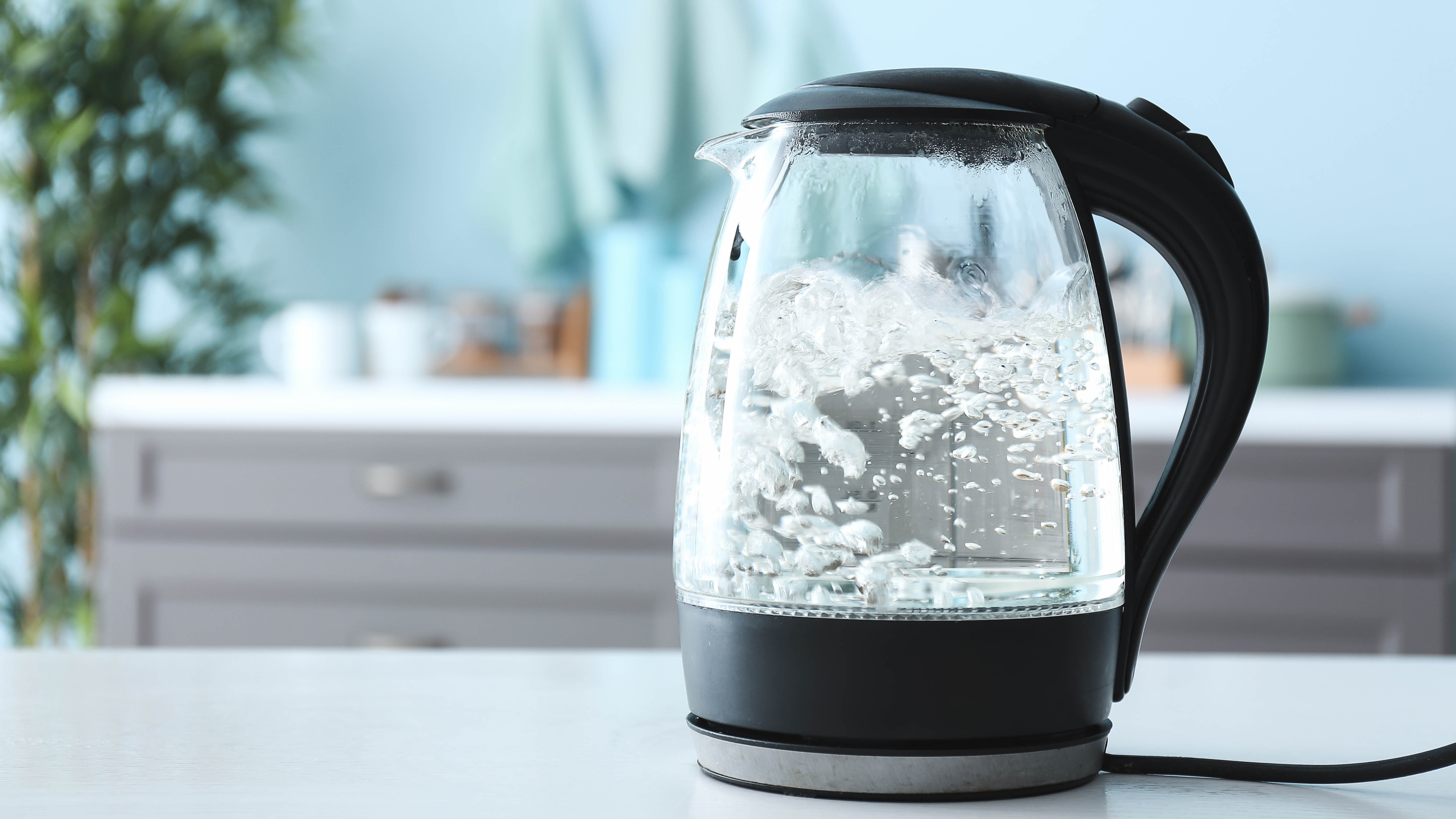
If you love hot drinks on a daily basis, your kettle is likely to have a build-up of limescale. This is often the case if you live in a hard-water area. Rather than buy an expensive descaler, simply mix 1 ounce of lemon juice to 2 cups water and pour into your kettle. Boil the kettle for the lemon to lift off the hard water residue and let it cool before emptying out. Rinse a few times and your kettle should be limescale free and clean again.
What not to clean with lemon
Similar to the 7 things you should never clean with white vinegar, there are certain things you should never clean with lemon due to its strong acidity. Never clean marble, brass-plated or any other porous surfaces with lemons as these may etch, scratch or stain the surface. Also, never mix lemon juice with bleach as this can release a toxic, chlorine gas in the air. Always use these substances in isolation.
If you want to know more about the benefits of baking soda, read our useful guide on what makes baking soda and vinegar so good at cleaning. And these are the 10 things you didn’t know you could clean with baking soda.
It’s also essential to know what is the best type of vinegar you can clean with and how to clean with vinegar without the smell. And for another cleaning tip, here's how to get rid of ants safely with household products.

As the Homes Content Editor, Cynthia Lawrence covers all things homes, interior decorating, and garden-related. She has a wealth of editorial experience testing the latest, ‘must-have’ home appliances, writing buying guides and the handy ‘how to’ features.
Her work has been published in various titles including, T3, Top Ten Reviews, Ideal Home, Real Homes, Livingetc. and House Beautiful, amongst many.
With a rather unhealthy obsession for all things homes and interiors, she also has an interior design blog for style inspiration and savvy storage solutions (get rid of that clutter!). When she’s not testing cool products, she’ll be searching online for more decor ideas to spruce up her family home or looking for a great bargain!
